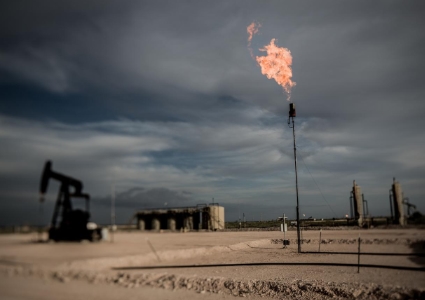Polling

Suggest an important issue not listed in this sub-category (). (Maximum 60 Characters)
Fracking

Hydraulic fracturing, or fracking, is a process that uses pressurized liquid to crack rock 8,000 feet below the surface so hydrocarbons such as natural gas can be extracted. This technique calls for several million gallons of water mixed with sand and toxic chemicals to be injected at high pressure into a well to create fractures deep underground. After this mixture is removed, these cracks form conduits along which natural gas and petroleum migrate into the well for extraction. After a well is depleted, it is usually filled with waste water from other fracking operations, creating a permanent disposal site for this toxic byproduct. About 1.7 million fracking wells have already been drilled in 21 states. It is estimated that fracking operations have produced 239 billion gallons of wastewater since 2005, an average of 3 million gallons per well. Exempted from the protections of the 1974 Safe Drinking Water Act by the Bush administration, this industry refuses to identify the “proprietary” chemicals it pumps into fracking wells. Health advocates worry about the carcinogenic chemicals likely contained in fracking fluids. Research shows that people who live near fracking operations are more likely to suffer serious health issues such as heart problems, neurological illnesses and cancer.
Supporters point to the benefits of home-produced energy such as jobs, improved national security and reduced air pollution from cleaner-burning natural gas.
Opponents point to the adverse environmental impacts of fracking including contamination of ground water, depletion of fresh water and toxic waste water disposal. They warn of the risks to air quality and climate change due to large methane releases during the fracking process, saying this leakage may be great enough to offset the benefits of lower carbon emissions that result from burning natural gas. They also claim natural gas is not a bridge to a clean energy future because methane, the main component of natural gas, is 72 times more potent in damaging climate than carbon dioxide.
In a recent executive order aimed at combating climate change, President Biden called for consideration of new methane regulations in the oil and gas sector to reduce emissions of this potent greenhouse gas.
Proposed Legislation: H.R.5857 - Fracking Ban Act (116th Congress)
Prospective Sponsor: Rep. Alexandria Ocasio-Cortez (NY)
Supporters point to the benefits of home-produced energy such as jobs, improved national security and reduced air pollution from cleaner-burning natural gas.
Opponents point to the adverse environmental impacts of fracking including contamination of ground water, depletion of fresh water and toxic waste water disposal. They warn of the risks to air quality and climate change due to large methane releases during the fracking process, saying this leakage may be great enough to offset the benefits of lower carbon emissions that result from burning natural gas. They also claim natural gas is not a bridge to a clean energy future because methane, the main component of natural gas, is 72 times more potent in damaging climate than carbon dioxide.
In a recent executive order aimed at combating climate change, President Biden called for consideration of new methane regulations in the oil and gas sector to reduce emissions of this potent greenhouse gas.
Proposed Legislation: H.R.5857 - Fracking Ban Act (116th Congress)
Prospective Sponsor: Rep. Alexandria Ocasio-Cortez (NY)
Poll Opening Date
April 19, 2021
Poll Closing Date
April 25, 2021
Democracy Rules respects the privacy of your information.
See PRIVACY STATEMENT
See PRIVACY STATEMENT